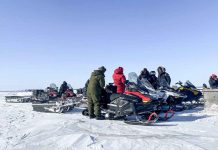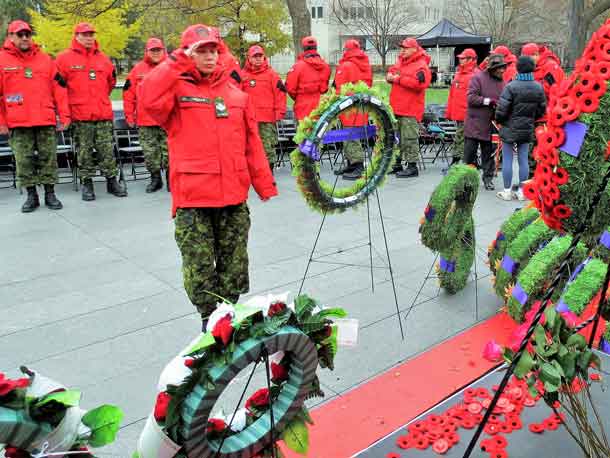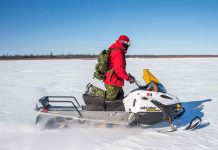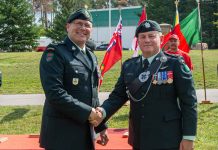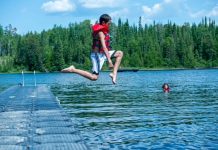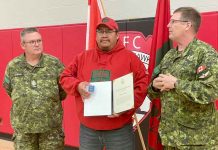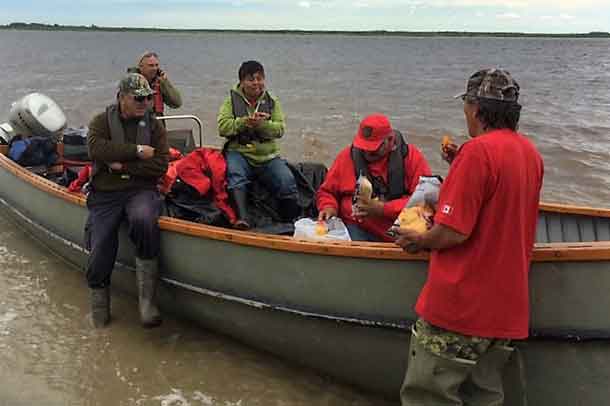

THUNDER BAY – Canadian Rangers have completed a unique long distance territorial surveillance patrol by boat along the James Bay coast in Ontario.
“I think it was the trip of a lifetime for everybody,” said Warrant Officer Carl Wolfe, a Canadian Army instructor. “I think everybody would say that. We put on over 1,000 kilometres on the boat. We went along the coast of Ontario, visited Akimiski Island, which is in Nunavut, and travelled to the Quebec border and just inside the Quebec coastline.
“We saw polar bears, black bears, seals, beluga whales, and lots of shore birds,” he said. ”The only thing I didn’t see the whole trip was a moose.”
Warrant Officer Wolfe is one of several Canadian Army instructors with the 3rd Canadian Ranger Patrol Group at Canadian Forces Base Borden who provide instruction and training for the 630 Canadian Rangers in 23 First Nation communities across the Far North of Ontario.
On Akimiski Island, which is uninhabited and only 19 kilometres from Attawapiskat, there was an encounter with a female polar bear and its two cubs after a warning shot was fired. The bears walked into the Ranger campsite and were only 75 feet from the Rangers before leaving. The Rangers also had an encounter with a black bear. “It came up to the tent, pawing at the grass and sniffing at the tent,” Warrant Officer Wolfe said. “It never bothered us and left, but the polar bear put everybody on edge until she was gone.”
Warrant Officer Wolfe travelled in a 26-foot wooden freighter canoe on the 13-day trip and was escorted by Rangers in smaller freighter canoes as he travelled from Moosonee to deliver military supplies for the Rangers in the Cree communities of Fort Albany, Kashechewan, and Attawapiskat.
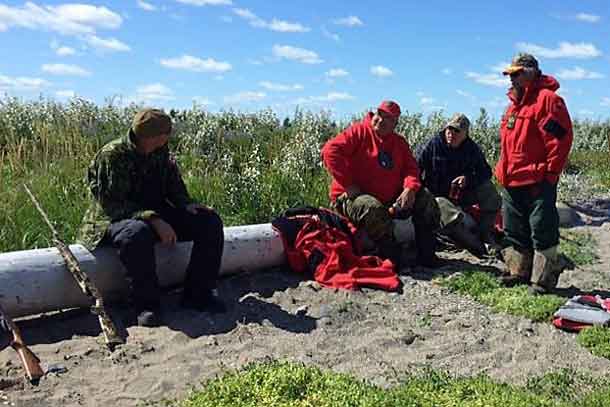
Warrant Officer Carl Wolfe, left, with Canadian Rangers on the shore of James Bay
“We delivered supplies but we were primarily conducting a surveillance patrol along the James Bay coast,” he said. “There were a number of purposes for doing that. It allowed the Rangers and me to become familiar with the terrain and complexities of working in that environment, which are mainly wind and tide.
“James Bay is a very flat area and has a number of different currents, different tides in different areas, and wind. So, depending on when your tide is and the direction of the wind, if you’re not careful, you can find yourself stuck in mudflats for six hours or so.”
There are few accurate charts for the area. “I found government charts for the area of the Moose River and parts of the mouth of the Albany River,” he said. “In our area of responsibility there’s not much else in the way of official charts that are accurate. Most of it is local knowledge and this was an opportunity for the Rangers to pass on that local knowledge.”
Warrant Officer Wolfe was accompanied for the whole of the trip by four Rangers, Yvonne Sutherland, Brandon Nakogee, and John Sutherland, all from Kashechewan, and Patrick Sullivan of Moose Factory. Rangers from Fort Albany, Kashechewan, and Attawapiskat escorted him for various parts of the trip. “One community would escort me to the next,” he said “I always had a number of boats and Rangers with me, including Rangers from Moose Factory when we went to the Quebec border.”
During stops on shore for meals and camping he provided classes in navigation, GPS use, first aid, marksmanship, rifle training, and other subjects. “But the main effort,” he said, “was to provide them and me with experience and knowledge of the area. It was a lot of work. You really had to pay attention to the weather, the winds, and the tides.
“It was definitely a good experience for me. If I ask a Ranger patrol to go out onto James Bay and accomplish a task, such as a search and rescue, I now know exactly what I am asking them to do.”
(Sergeant Peter Moon is the public affairs ranger for the 3rd Canadian Ranger Patrol Group at CFB Borden.)

